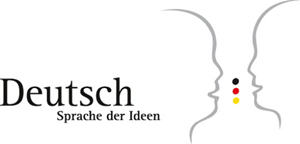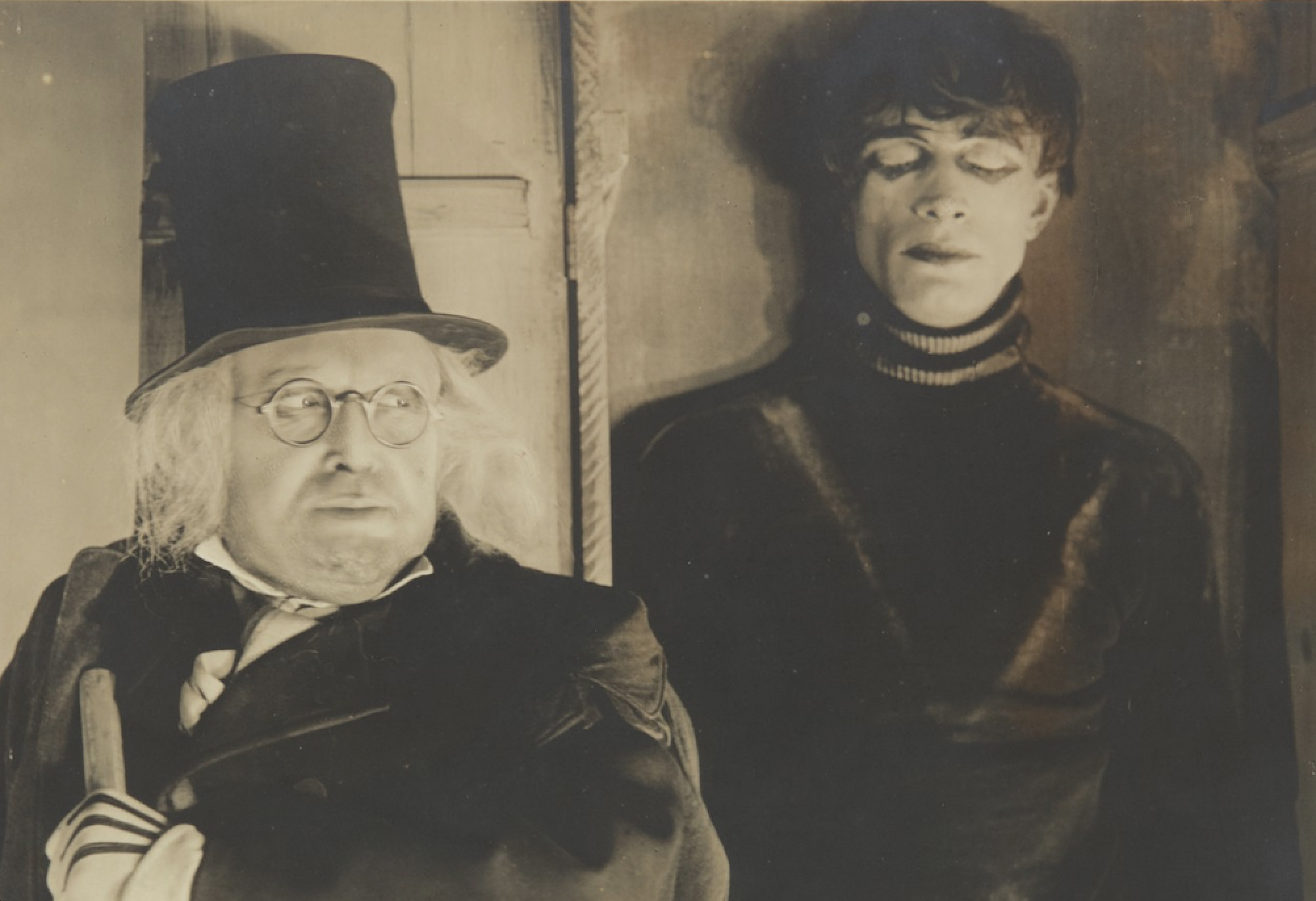Topics Act 1
Beginnings

Introduces the study of Central European cultures through cinema. Explores the role of cinema and other media in reflecting society in Central and East European countries. Along with learning about Central and East European popular cultures, students analyze the relationship between media and politics. Special attention will be paid to cinema; other media, such as television, radio, newspapers, contemporary literary works, and the Internet will also be considered as part of the world of mass media. The course is designed for students seeking General Education Points in Arts and Humanities and Communication and is taught in English in combination of lecture and discussion, film viewing, and analysis in formal and informal oral and written assignments. Open to all students and applicable toward the following minors or majors in Languages and Cultures: German and Central European Studies Track and Russian and East European Studies Track. No prerequisites.
GOALS AND OBJECTIVES:
Apply approaches and methods of cultural enquiry, particularly, from historical and philosophical perspectives to understand Central and Eastern European worldview.
Analyze critically the historical, ethical, political, cultural, environmental, circumstantial settings and conditions that influence the ideas in Central and Eastern European cinematography and culture.
Interpret specific works of cinematography using a range of ways of reading and a range of interpretative strategies.
Write coherent, polished interpretive essays on cultural, cinematographic, and literary topics.
Produce well-organized presentations.
Most class sessions will include a combination of lecture, film viewing, and group work. As with most 100- and 200-level Languages and Cultures Department culture courses, this course should be capped at 30 to facilitate discussion and adequate attention to writing instruction and evaluation.
Activities
Study: Students are expected to study and learn the material, taking responsibility for their own learning. Attendance in class and completing assignments is not enough preparation to master the material. Students are expected to spend two hours outside of classtime to prepare for each class session (six hours per week). This preparation does NOT include time spent watching films.
Collaboration: Students may be required with another student in class and in small groups for both homework assignments and for in-class activities. Students may also grade each other on their performances.
Presentations: Students may be required to give presentations that demonstrate thorough knowledge of a topic. Reading from Power Point slides is NOT acceptable.
Writing: Students will write essays, summaries and reviews of films, an outline of the final paper, and a final paper. Collaborative tasks may be assigned. Unless otherwise instructed, essays will be submitted as MS-Word documents in the designated "assignment" folder on BOLT; no other format is acceptable.
Film Viewing: Constraints on time do not permit entire films to be shown during class sessions. Students will be responsible for watching the films outside of class. Other films beyond the selection for everyone to watch will also be required.
Discussion: A significant portion of the participation grade is based on thoughtful and informed contributions to discussions.
|
New Studying Resource: CircleIn
Bloomsburg University has made CircleIn, an all-in-one studying app and website, available to all BU students. When students wish to talk to other students in class for clarifications, practice, or get help from others in class, this app is an ideal platform. By using CircleIn students can earn rewards and scholarships. |
Any act of misrepresentation or conflict with the order of the course, including, but not limited to plagiarism, cheating on tests, false excuses for absence, disruption of class, or engaging in activity during class other than the work at hand, constitutes academic misconduct. (See BU Policy #3512 "Academic Integrity.")
The following are some examples of disruptive acts during class:
The instructor will request those who are disruptive to leave the classroom. If the request is ignored or contested, University Police will be called to provide assistance. For online sessions, the instructor will remove disruptive students from the class session.
Any and every act of misconduct will affect grades; in the worst cases, such as plagiarism or cheating, students will fail the course.
Students who commit an act of academic misconduct will be subject to sanctions as stipulated by the university. See BU Policy 4802 secton H.
(PRP 3506) "Regular classroom attendance is expected of all students. However, a student will be afforded reasonable assistance by a faculty member when class work is missed as a result of extenuating circumstances beyond the student's control, such as but not limited to: personal illness, death or critical illness in the immediate family, participation in a college-sponsored co-curricular activity. Mutually satisfactory arrangements for assistance must be made by the student when the activity is announced. Instructors are encouraged to use their professional judgment in deciding the legitimacy of each case and may request the student to provide official documentation to verify the reasons for the absence. The instructor is not required to give makeup examinations or review other class work missed as a result of unauthorized absences other than those authorized by this policy."
NOTE: The Student Health Center does not issue student illness excuses for missed classes.
For every excused absence the student is responsible for furnishing adequate documentation.
Every unexcused absence will diminish the student's grade.
Students are responsible for classwork and assignments whether an absence is excused or not.
Students can be marked as absent if late for class.

◊ Attendance and regular active participation is essential. Every absence and lack of preparation will diminish the final grade.
◊ Students are responsible for any and all assignments posted on BOLT, to be checke daily and to be completed by the due date.
◊ Students are responsible for any and all assignments sent to their BU email address (University policy).
◊ Written essays must be submitted as an MS-Word document in the disignated folder on BOLT. No assignments will be accepted as email attachments.
◊ Students may be required to use the resources in the Language Laboratory in the Department of Languages and Cultures, except when pandemic precautions prevent use of computer labs.
◊ Assignments are accepted on the due date only, unless there is compelling need to submit a late assignment.
◊ Students are responsible for all computer assignments and must use a computer that can access and operate all the required files and functions. The language laboratory is available for all computer activities, except when pandemic precautions prevent use of computer labs.
◊ Two hours of preparation is expected for each hour in class--six hours of preparation per week. The six hours do not apply to group film viewings.
◊ Students are expected to study the material. Completing assignments and attending class are only part of the learning process.
◊ Attitude will contribute significantly to the final grade, even though it is not evaluated in quantative terms.
◊ The final essay will be due on Tuesday, 10 May 2022 at 10:15AM.
◊ Grades posted on BOLT do not represent the official grade record; grades posted on BOLT allow students to gauge their progress during the semester.
◊ No extra credit assignments will be given.
◊ These procedures are subject to change at any time.
Grade distribution (tentative):
◊ assignments and quizzes: 30%
◊ participation: 30%
◊ discussion: 10%
◊ Final essay: 30%
◊ Sikov, Ed. Film Studies. An Introduction. Second Edition. New York: Columbia Univ. Press, 2020.
The second edition is required. The first edition is not acceptable.
◊ Standard 8½" by 11" lined writing paper, either loose-leaf in a binder or a bound notebook.
NO laptops or cell phones are permitted during class unless used for a classroom activity, such as quizzes.
◊ Internet sites and apps as needed.
◊ Supplementary materials furnished by the instructor at no cost.



The lesson plan only sets approximate goals and can be changed at any time.
For the complete tentative schedule of class sessions and film viewings: CES 214 calendar
Analysis of films require background knowledge about such things as production, reception, plot, themes, and the historical contexts.
The imdb website provides the best information to be found on the Internet, therefore the imdb link is provided below for each film.
Wikipedia links for the films are also given below.

Beginnings


Beaten by the System

Infamy of the Past

Last Laugh